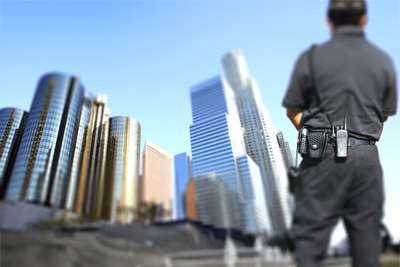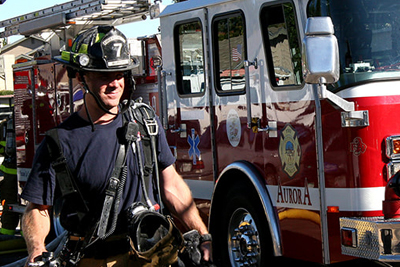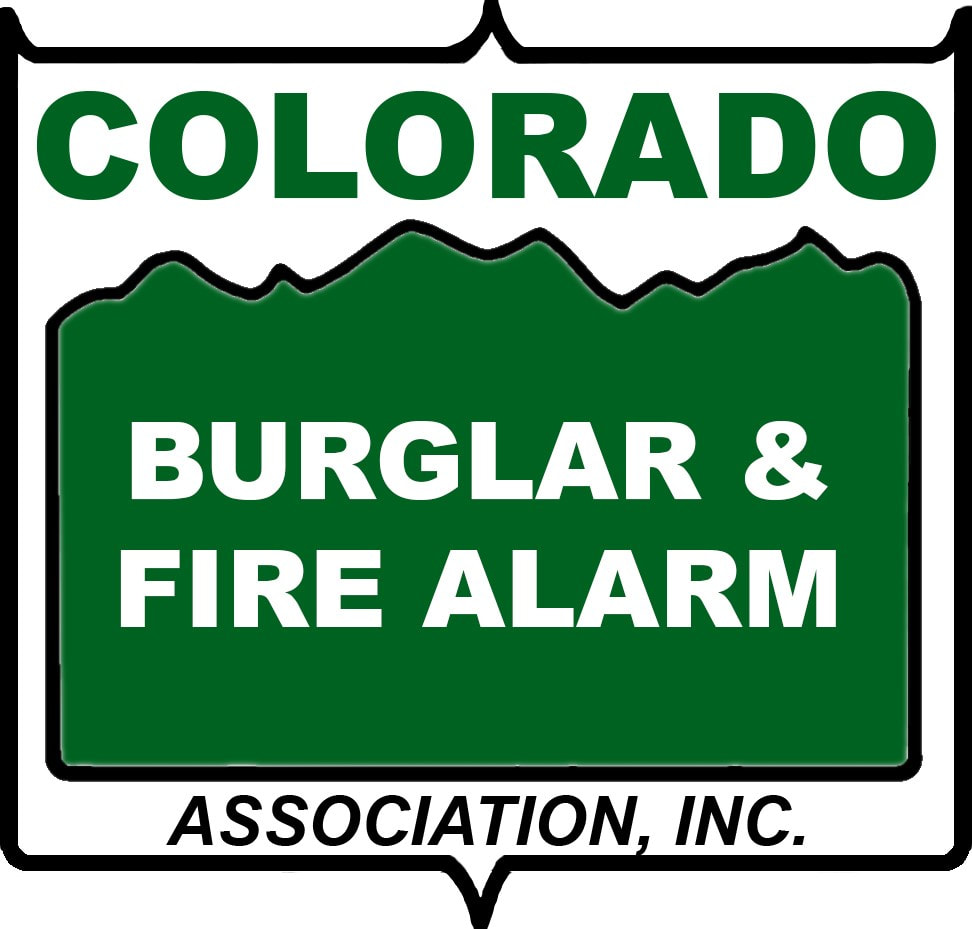Consumer Resources
Today's electronic security and life safety industry is complex.
With new technologies and many choices of products and services in the marketplace, it can be difficult to know what the best choices are for your home and business. The Colorado Burglar & Fire Alarm Association’s member companies can assist you with current professional information. Read through the basic information below, then reach out to our member companies to provide the professional security and life safety services you need.
Why Do You Need A Security System?
- All too often homeowners and business owners are reactive when it comes to home security: they install a security system after their home or business has been invaded. It is important to be proactive.
- According to a study by University of North Carolina at Charlotte, approximately 83 percent of convicted burglars said they would attempt to determine if a security system was present before attempting a burglary. But simply sticking an alarm company’s sign in your front yard won’t be enough to convince burglars that your home is protected. Experienced burglars have several ways of determining whether a home is equipped with a security system.
- According to the FBI burglaries of residential properties accounted for 69.5 percent of all burglary offenses
- Studies show that burglars typically spend no more than one minute breaking into a home and fewer than 10 minutes inside. Although they work quickly, burglars have a keen eye for valuable possessions. The FBI reports that each home burglary victim suffers an average of $2,361 in property loss. For a list of top items burglars steal click here.
- Your chances of a break-in are highest right after you move into a new home – Burglars know that most people don’t install security systems until 2 to 4 years after they move in.
- Burglars are more likely to break in to your home between 9:30 a.m. and 4:00 p.m., while you are at work, as opposed to breaking-in at night. For businesses, nighttime burglaries occur more frequently.
- Nearly half of burglars break-into homes through the front door, 32% choose the back door and 22% through a first-floor window. The rest break-in through a basement, garage or second floor window.
- Today’s systems can not only detect invasion but also fire, gas leaks or environmental changes.
- Security is a critical component of smart home technology. Enhanced home security systems have user-friendly design and convenient lifestyle-enriching benefits such as remote monitoring and controls.
INSURANCE SAVINGS
Check with your homeowners/business insurance company! Typically, they offer a discount between 2% and 20% on your insurance when you install a security system. Click here for more details about insurance companies and alarms.
How Security Systems Work
Electronic alarm systems are made up of three component parts designed to detect, determine and deter criminal activity or other threatening situations. An alarm system can detect an event such as an invasion, fire, gas leak or environmental changes; determine if the event poses a threat; and then send a notification about the event.
Detect
The component of an alarm system that detects activity is called a sensor. Here are some common types of sensors that may be used to protect your home.
- Door and window contacts are switches that indicate the opening or closing of a door or window. The switch is mounted to a door or window and is held closed by a magnet attached to the frame. When the door or window moves away from the magnet, the switch opens and it is sensed by the alarm control panel.
- Motion Sensors can detect movement or motion in a large room.
- Glass Break Detectors are designed to constantly listen for the sound of breaking glass. When the glass break detector hears the sound pattern caused by shattering glass, it sends an electronic signal to the alarm control panel.
- Shock Sensors can detect an intruder that is using force to pound through a wall, roof or other area of the structure.
- Carbon Monoxide (CO) detectors are used to detect carbon monoxide; an invisible, odorless, colorless gas. Upon detection of CO, the sensor will send a signal to the control panel, which will then emit an audible alarm.
- Panic Buttons send an immediate, discreet call for help upon the press of a button.
- Environmental Sensors react to the presence of water or sudden increases or decreases in room temperature.
- Smoke Detectors are designed to detect fire. There are two types of detectors: ionization and photoelectric. The most common smoke detector, ionization, is best used to detect flaming fires without a lot of smoke. Photoelectric detection reacts to smoldering fires that produce large amounts of smoke. Both technologies are required to perform at the same level in a fire and provide the same amount of warning. The most effective smoke detector is one that combines both forms of detection.
- A Keypad is a device that is used to arm and disarm an alarm system. Keypads are generally installed near the entrance or exit of home. If a door or window is opened when the system is activated, the keypad will immediately initiate an alarm.
Determine
The alarm system control panel is the brain of the system. It carries out the decide function by processing the information it receives from various sensors and responding accordingly. For example, if a door or window is open while the system is disarmed, the control panel ignores the event. But, if a window is opened while the system is armed, it will immediately respond by sending a signal to your alarm monitoring center and triggering an audible alarm.
Alarm system panels have built in communicators that transmit and receive signals via a phone line. These signals are sent to a central alarm monitoring center where trained dispatchers monitor alarm system signals. In the event of a triggered alarm, a dispatcher will contact you to verify the emergency situation and if necessary, contact the police or fire station on your behalf.
Deter
An alarm panel responds to a triggered alarm by activating physical alarms such as a siren and/or strobe lights. These devices are used to scare an intruder away from your premises or alert you of a threatening situation such as a fire or the presence of carbon monoxide.
The component parts of an alarm system work together to detect, determine and deter danger in your home. To ensure your equipment will function properly in the event of an emergency, it is important to conduct regular testing on your systems. Contact a member of the Colorado Burglar & Fire Alarm Association for more information.
SOME ADDITIONAL INFO courtesy www.alarm.org
Selecting An Alarm Company
Following are some tips for selecting a security alarm company:
- Visit CBFAA website at www.cbfaa.org. Here you can go to the Regular Member tab to find member companies in your area. Our member companies are properly licensed and must adhere to a strict Code of Ethics and Standard of Conduct which were put in place to protect consumers.
- Find a company with Certified Employees. When you speak with potential companies, ask them if their employees are trained by ESA’s National Training School (NTS). Security professionals that are certified through NTS have completed extensive training in electronic security. Trained and certified professionals often yield more efficient and higher quality work than those who are not certified.
- One of the best ways to determine if an alarm company is credible is through consumer claims and work history. This information is readily available from several sources such as the crime prevention department at your local law enforcement offices, licensing agencies (such as Contractor’s Boards, city/county licensing, etc.) in your state, consumer protection agencies and the Better Business Bureau.
- Narrow the field to 3 companies. Arrange an appointment with each company when all members of your household will be present. Be sure to ask for the name of the person who will be calling on you. Upon the arrival of each representative, ask for proper company identification. Your consultation should consist of a home inspection and security recommendations for your property. Always ask for the quote for your alarm system in writing.
- You are establishing a relationship with the alarm company. Educate yourself so that you feel comfortable with your choice. Be sure the salesperson asks you what you want to protect and why as they are designing a solution around your needs.
- Study each contract to ensure you know exactly what you are getting. Consider the merits of leasing vs. buying.
- Know what company, if any, will be monitoring your alarm. Understand the procedures when an alarm is tripped and monitoring company calls.
LOCAL ALARM ORDINANCES
Many municipalities have alarm ordinances requiring each home and business alarm to be registered. Call your local municipality for information on such an ordinance. These ordinances are in place, so the police department will know who has an alarm.
Your alarm company will be able to assist you with the correct information about your local regulations. Some municipalities also charge fines for excessive false alarms, so be sure everyone who has access to the alarm knows how to properly use it.
Proper Use Of Your Alarm System
It has been proven that user education is the best defense against false alarms. It is very important that the installer teach you and your family how to properly use your security system, including false alarm prevention measures. Everyone who will be using the system should be present during this educational process. To ensure your equipment will function properly in the event of an emergency, it is important to conduct regular testing on your systems.
Many municipalities are now charging fines for excessive false alarms. For this reason, you and anyone using the system should pay close attention to the instructions from the alarm company on system use.
TIPS TO PREVENT FALSE ALARMS
LOCAL ALARM ORDINANCES
Many municipalities have alarm ordinances requiring each home and business alarm to be registered. Call your local municipality for information on such an ordinance. These ordinances are in place so the police department will know who has an alarm.
Your alarm company will be able to assist you with the correct information about your local regulations.
Consumer Beware
The business of selling residential alarm systems is very competitive and customers are aggressively sought by many companies through a variety of methods and means. There is a difference between good salesmanship and fraud, and you need to be aware of the difference. Those who are preyed upon are often the elderly, non-English speakers and those who have recently purchased a home.
All CBFAA member companies must adhere to a strict Code of Ethics and Standards of Conduct to ensure high quality work and services. Some examples are:
- Carry photo identification and clearly state who they work for when making sales calls
- Be properly licensed and registered in compliance with all applicable laws, ordinances and regulations.
- Members shall use written materials that clearly and conspicuously disclose all material terms and conditions of the offer before obtaining a customer’s consent,
- Immediately discontinue a sales presentation and leave the premises if a potential customer asks them to leave,
- Never make any false statements about competing organizations.
FOR YOUR SAFETY
Be cautious of any UNSOLICITED sales contact. Verify all information before you authorize any new work or changes.
By capitalizing on large numbers of college students seeking summer employment, out-of-state unlicensed alarm companies often send teams of salespeople to cities. Most teams work on commission, incentives and contests. As they speak to homeowners they keep the pressure on in order make the sale. While licensed alarm representatives will complete the process ethically and responsibly, these representatives will not.
Common Scam: The Double Billing Scam
The fraud scheme goes like this: You receive an unsolicited telephone call or a knock on your door. This person tells you they now have ownership of your alarm system(s) or have taken over your account.
The salesman starts making false statements similar to the following; your current alarm company has been sold, is going out of business, is going into bankruptcy, or we have obtained all rights to your account. The salesman will want to change the programming for your alarm system and update your paperwork by writing a new contract with their company.
No legitimate alarm company will show up at your door to fix or replace equipment without a prior appointment having been made. If you are approached in this manner DO NOT ALLOW ANYONE ACCESS TO YOUR HOME OR BUSINESS. GET VERIFICATION FROM YOUR CURRENT ALARM COMPANY.
Take the time to make a phone call. You’re still under contract with the current alarm company and a new contract may obligate you to a second alarm company and their charges. Without due diligence, you will start getting bills from both alarm companies.
This becomes the “Double Billing” scam. You often are left paying both bills, costing hundreds of dollars. Alarm businesses generally notify you, in writing, when they are being sold, transferred or having billing changes.
Helpful Links for Consumers
Better Business Bureau
www.bbb.org
Colorado Attorney General – Consumer Protection
https://coag.gov/office-sections/consumer-protection/
Colorado Division of Homeland Security & Emergency Management
https://dhsem.colorado.gov/
Crime Stoppers – Metro Denver
www.metrodenvercrimestoppers.com
Crime Stoppers – Northern Colorado
Contact your local police department to reach Crime Stoppers of Northern Colorado
Crime Stoppers – Pikes Peak Region – El Paso and Teller Counties in Colorado
www.crimestop.net
CyberSecurity & Infrastructure Security Agency (CISA)
ESA – consumer website
Electronic Security Association
www.alarm.org
FBI – Denver
NCPC
National Crime Prevention Council
www.ncpc.org




